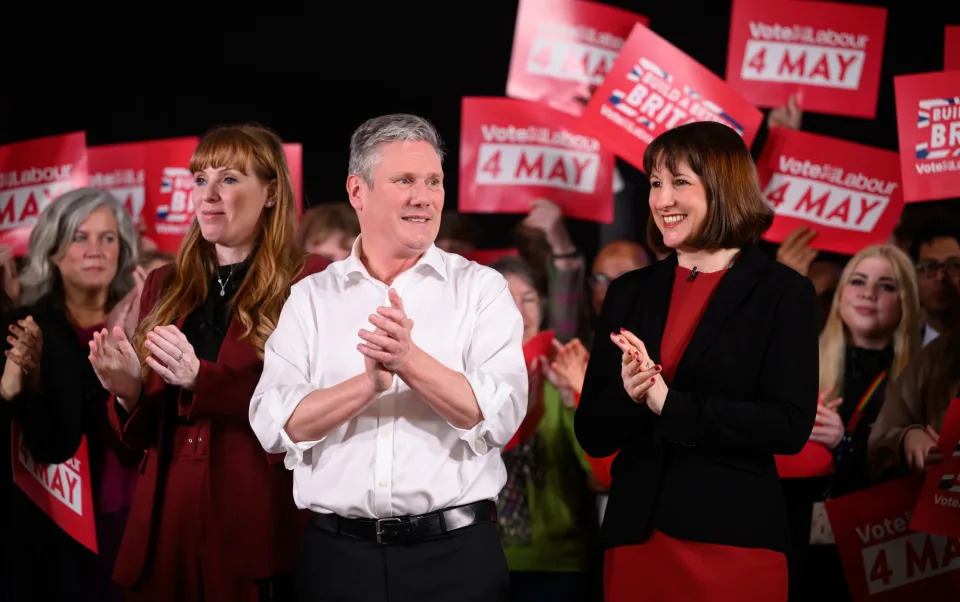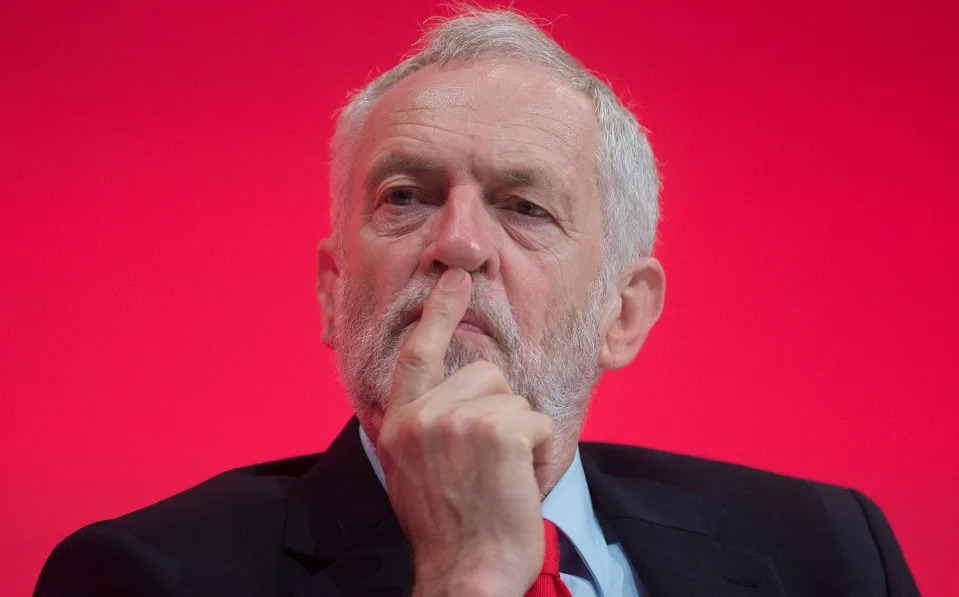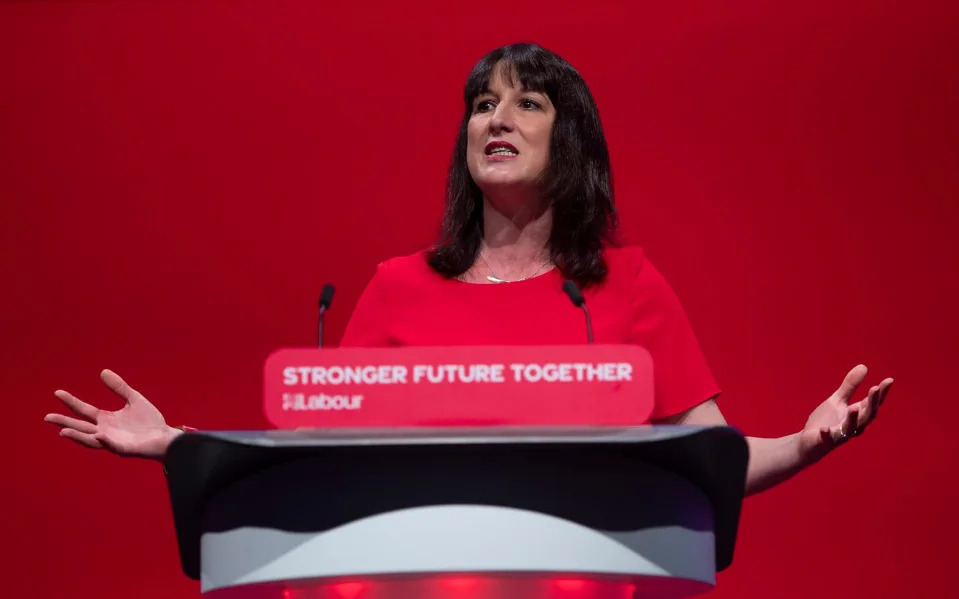The Trump-loving economist vowing to shake-up Argentina's financial system
Tim Wallace
Thu, 17 August 2023

The former tantric sex coach is the surprise frontrunner in the race to become Argentina’s next
president
Milton Friedman was not renowned for being soft and cuddly. The father of monetarist economics inspired tough central bank crackdowns on inflation that triggered recessions and provided the intellectual ballast for Margaret Thatcher, the Iron Lady.
However, for Javier Milei, Milton Friedman is a good name for a dog.
The surprise frontrunner in the race to become Argentina’s next president has named one of his five English Mastiffs after the Nobel prize-winning. Other pets are named after Robert Lucas, another Nobel economics laureate, and Murray Rothbard, an economist of libertarian leanings.
Milei thanked his dogs alongside his supporters over the weekend in the wake of his surprise victory in the primary round of the election.
The one-time rock star and former tantric sex coach has been dubbed a Latin American Donald Trump and Milei is said to be an admirer of the former president.
His success has alarmed not only the political establishment but also investors and the economic mainstream.
A self-described “anarcho-capitalist”, Milei has proposed abolishing the central bank and claimed he would “burn down” the institution.
He has proposed moving Argentina from its plunging peso onto the US dollar and wants to balance the books by taking a “chainsaw” to public spending.
He also wants to cut taxes, including on workers and agricultural exports, and shrink the public sector by encouraging people to retire rather than laying off staff.

Milei has been dubbed a Latin American Donald Trump and is said to be an admirer of the former US president - ROBYN BECK/AFP
The radical package has sent investors fleeing from Argentina, with the peso plunging this week.
Yet his proposals have struck a chord with voters. Inflation is running at over 110pc in the country, one of the highest rates in the world, and surging prices have tipped around 40pc of the population below the poverty line.
“Remember, a different Argentina is impossible with the same people as always, with the same people that have always failed,” Milei told supporters after the votes came in over the weekend.
“Today we have stood up to say enough to the model of decadence. Today we took the first step for the reconstruction of Argentina.”
Despite his eye-catching appearance and colourful background, Milei’s proposals are addressing some of Argentina’s most pressing problems.
The country has racked up debt steadily over the past 30 years, with the exception of six years of surpluses before the financial crisis.
“The concept of reducing the fiscal deficit is definitely a good one,” says Sergi Lanau at Oxford Economics.
When it comes to addressing the inflation plaguing the nation, Milei’s plan to dollarise the economy also has merits.
“If you look at other emerging markets that have curbed inflation, pegging to the dollar is often a part of the process,” says William Jackson at Capital Economics.
Adopting a currency issued by the Fed removes the temptation for politicians to print money to pay for their policies, which fuels inflation.
Jackson says: “It removes the problem of deficit monetisation and the political influence over the central bank.”
This may be where the scheme to scrap the central bank comes in. Adopting the dollar would remove the central bank’s control over monetary policy and potentially leave it responsible for topics such as bank regulation instead.
Yet, in echoes of the market reaction to Liz Truss’s reformist budget in Britain, investors have baulked at Milei’s electoral success.
The peso went into freefall after the first round presidential primary results were announced, in which Milei gained more than 30pc of the vote.
A devaluation took the peso down almost 18pc on Monday. One US dollar now buys 350 pesos at official exchange rates, up from 135 a year ago and 60 just before the pandemic.
The Central Bank of Argentina was forced to take emergency action to defend the economy, raising its headline interest rate from 97pc to 118pc.
Investors are worried that Milei’s shock therapy risks crippling Argentina’s already weak economy and putting it at risk of defaulting on its international debts.
There are also questions about just how credible the policies are when looked at in detail.
Lanau says: ”When his advisers say they will bring the deficit down to zero in a few months while not getting rid of civil servants and not slashing social spending, it is not possible.”
The practicalities of adopting the dollar are also challenging.
“Essentially the government or central bank needs to hold dollar assets at least equivalent to the monetary base, so it can cover all of the cash in circulation and all of the banks’ reserves at the central bank,” says Jackson.
The state has been running down its supplies of foreign currency in the hope of propping up the peso. Without many physical dollars, it is hard to seek to replace the currency. Few are willing to lend to the country.
Then comes calculating the exchange rate at which to make the shift. Too low and households feel hard done by, replacing their hard-earned pesos with a very small stack of greenbacks. But too high and the economy can be hamstrung with an uncompetitive rate, making exports unaffordable and undermining growth.
Milei’s team has indicated it could let individuals choose which currency to use, in a more free-floating manner, though the details are unclear.
Lanau says more announcements on the plan could push Argentinians to buy dollars as soon as possible, effectively dumping the peso and pushing it down further.
“Depending on what he says in the campaign, people could freak out even more,” he says.
Further falls in the peso would mean higher inflation, adding to the already bleak economic outlook. Argentina’s economy has contracted for five of the past 10 years and is expected to shrink again this year before, at best, stagnating in 2024.
It is far and away the biggest borrower from the International Monetary Fund, with a loan scheme worth $44bn rearranged last year. Buenos Aires only agreed a new deal at the end of last month to avoid the country falling behind on its debt repayments to the Fund.
Jackson says: “It is fair to say Argentina is in a pretty dire crisis. There is enormous pressure on the currency. It is really only keeping its head above water because it is receiving funding from the IMF.”

Milei’s team has indicated it could let individuals choose which currency to use - Natacha Pisarenko/AP
Milei said officials from the IMF have approached him to discuss the situation following his success in the weekend’s polls. The Fund itself says it regularly meets politicians.
A spokesman said: “In the case of presidential candidates, these engagements also allow staff to better understand key aspects of future potential economic policies.”
Argentina has defaulted on its debts nine times in its history, including failures to pay creditors in 2020 and in 2014. The recent collapse of the peso puts the country at risk of yet another default.
Major falls in currencies against the dollar have led to debt defaults around 50pc of the time over the past three decades, according to Capital Economics, and a recession in 80pc of cases. “Argentina is unlikely to be an exception,” analysts there say.
A dependence on the IMF may yet be turned into a strength, suggests Juan Grigera at King’s College London.
“Argentina is the biggest debtor to the IMF, for the IMF it represents about 34pc of all it lent,” he says. “This was a leverage of sorts in negotiating a restructuring of the debt in 2019 and during Covid.”
Grigera, who teaches international development and earned his PhD in Buenos Aires, points out that all three leading presidential candidates are also committed to continuing debt payments.
However, Lanau warns that rising debt repayments in 2025 mean “it will be impossible not to default” by the end of that year.
“The only way you can refinance without defaulting is issuing new bonds, but [Argentina] is very far from being able to borrow money from anyone other than the IMF,” he says.
“There is virtually a 100pc chance that by late 2025, they will run out of dollars, even if there is someone in charge who is trying to fix things.”



















